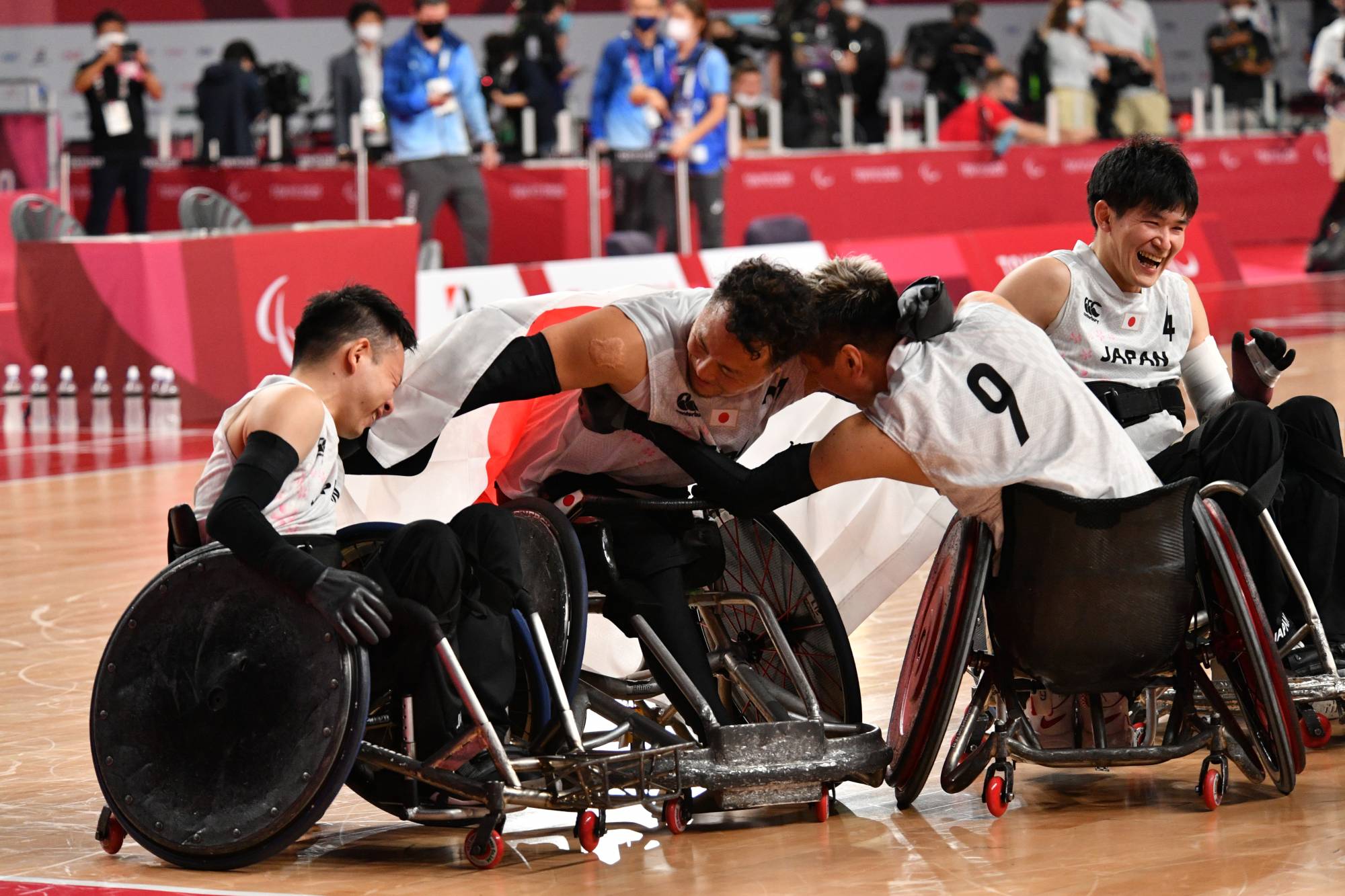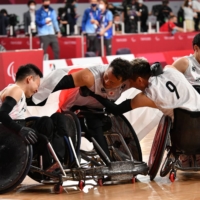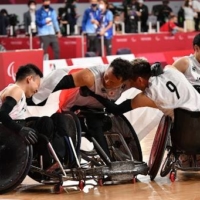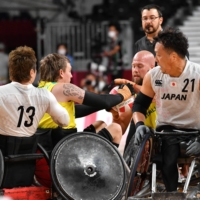Japan may not be leaving the Paralympic wheelchair rugby competition with the medal it was hoping for, but it’s not leaving empty-handed either.
The Japanese bounced back from a disappointing loss in the semifinals with a 60-52 win over Australia in the bronze medal match at Yoyogi National Stadium on Sunday afternoon.
“It is very much regrettable to come out with the bronze,” Japan’s Shinichi Shimakawa said. “For this competition we wanted nothing but gold. We thought in these past five years we had prepared enough for a gold medal.
"We had years of training, but even then it wasn’t enough,”
With an audience of socially distanced school children looking on, Japan turned in a solid performance that bore little resemblance to their semifinal match against Great Britain on Saturday.
“Those kids gave me a lot of strength and they pushed us forward and gave us energy,” Katsuya Hashimoto said.
The Japanese players hugged and waved to the crowd at the final whistle. Captain Yukinobu Ike, who scored try after try for the Japanese during the tournament, pumped his fists in celebration before having a Japanese flag draped over his shoulders.
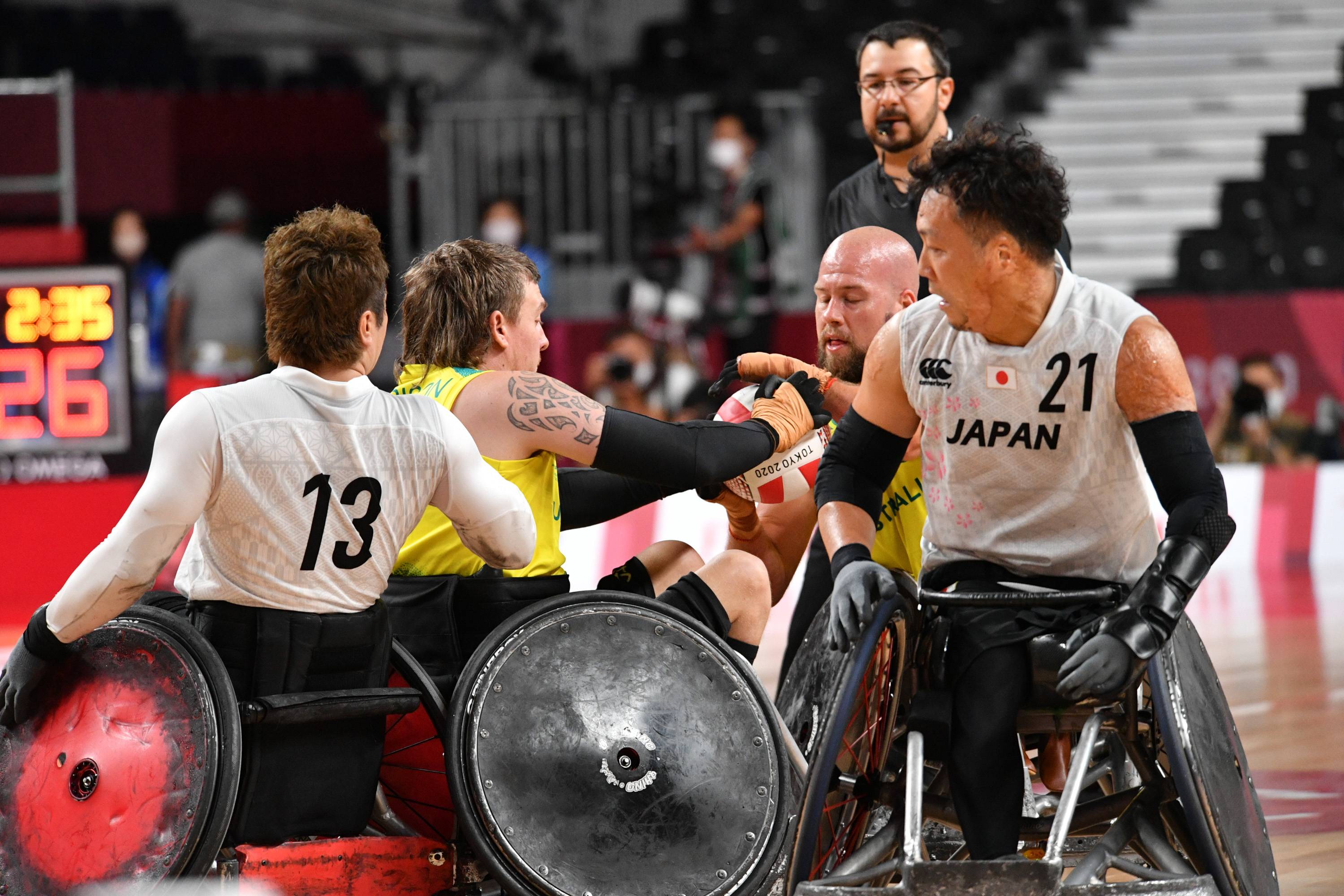
Hashimoto was brought to tears.
“I am very grateful to all my teammates and the coaches,” he said. “Without their support I would not have achieved (this). In the three years to come, we will train more, do our best and get the gold medal
Japan earned a medal for the second straight Paralympics, after finishing in the same position at the 2016 Rio Games.
Australia, meanwhile, finished fourth after claiming gold in 2016.
Japan took the initiative against the Australians after being knocked off balance by Britain a night earlier.
“We had never lost a game to the British before, so probably we were too optimistic about the game yesterday,” Hitoshi Ogawa said.
Japan had six steals and just two turnovers during the match. The team had five against the British.
“I was surprised yesterday by the play of the Great Britain team,” Shimakawa said. "We were unable to play the way we had trained for, and we were unprepared for the fight against them."
Daisuke Ikezaki led the Japanese with 23 tries, while Ike had 16.
Dynamic Australian 3.5 player Ryley Batt led all players with 27.
The gold medal went to Great Britain, which upset Japan in the semifinals and beat the United States 54-49 in the final to claim its first Paralympic wheelchair rugby title. Great Britain was in the final for the first time, while the U.S. settled for a second straight silver medal.
“I blooming hope there are some beers in the changing room," said Jim Roberts, who was already in a celebratory mood.
Great Britain's Stuart Robinson made his presence felt throughout the match, finishing with 14 tries and some big plays on the defensive end. Roberts led the way with a game-high 24 tries.
The United States won the first meeting between the two teams 50-48 in the pool stage. Great Britain led most of the way in the final.
"We learned a lot from the pool game we played against the Americans, what we needed to tighten up and what we needed to be better at," Robinson said. "We kind of put that into practice today."
Britain committed three turnovers, while the U.S. finished with six. For Britain, one of the keys to gold was to be smart and avoid the disastrous turnovers that can ruin a match.
"I really enjoy the tactics of the game," Roberts said. "You really have to slow it down and be a thinking man's game. That's why USA are so good, they're one of the smartest teams. We knew they had a strong key defense, so that was our main goal, to stop them from using that, because they would get turnovers against us using that."



